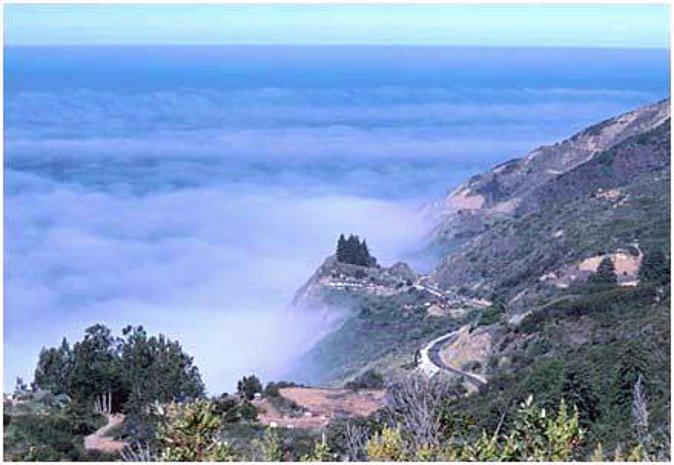Original article at www.gonomad.com
The first thing I notice is the quiet. It begins the minute I turn off my engine, step out of my car and onto the small dirt parking lot of the New Coaldale Hermitage. It is a sudden, overwhelming quiet that takes me aback. I am unnerved, unaccustomed to this kind of stillness.
Even on the quietest nights in the San Francisco neighborhood where I live, there is constant, familiar ambient background noise--the hum of cars driving by, muted conversations and laughter of people passing under the window, the doleful, distant blare of a fog horn in the Golden Gate.
Here, there is the muffled crunch of leaves underfoot, the playful chirping of birds, the
faint, the rhythmic breathing of the Pacific Ocean. The Hermitage, a monastery of Camaldolese Benedictine monks, offers guests the prospect of silent reflection and contemplation.
I look forward to “getting away”, although as I drive the winding road leading up to the retreat house, I’m not exactly sure why I am here. I’m not searching for any spiritual fulfillment or deep insights into the wild landscape of my inner self. I want to “unplug” my life from all of the electronic devices that connect me to the world, to live, even for a few days, a more simple existence. At the very least, I want some peace and quiet.
But instead of the calm and tranquility that I expect to feel, I am steadily overcome by a wave of anxiety. Three whole days spent in silence? No music? No talking? It sounds more like a prison sentence. How long could I last? What in the hell would I do with myself?
Piece of Sky
My anxiety subsides moments after I walk through my room and step out into the private garden. Perched high on a mountainside, the retreat rooms command a spectacular view of the Big Sur coast. I have my very own piece of sky.
The view alone was enough. Above, a falcon circles in wide swaths. A deer wanders by the garden, rustling leaves along the trail. A swarm of bees competes with a handful of hummingbirds for the sweet nectar of the primeval century plant just beyond the garden. A parade of chirping partridges waddles by in single file. The silence and the stillness of the place beckon me to stay.
I keep me busy on the first day out of sheer curiosity and the novelty of the place. I
walk the grounds of the Hermitage, alongside the entrance road, find a secluded spot on a bench facing the coast. I read Gary Synder and Robinson Jeffers. I write in my journal. I pull out my sketchpad and draw. A few hours later, the clang of the Hermitage bells calls me to lunch, the main meal of the day. Walking back toward the retreat house, I pass by the other guests, a middle-aged Japanese couple and an American college student. “Hello,” I say with a smile, forgetting for a moment the rules about silence. The couple smiles and nod. The college kid ignores me. Lunch is laid out for us buffet style in the cramped kitchen of the retreat house. We manage to maneuver around each other without any spills or mishaps.
No Speaking at Dinner
It is a strange dance of averted glances and awkward contortions made to avoid any human contact. I want someone to pass me a fork and the balsamic vinegar. I hold back the reflex to open my mouth and speak.
How odd and unnatural, I think, to be in such close proximity to others and avoid conversation. But then again, I think, when’s the last time you spoke to a stranger in an elevator? I take the meal in my garden, savoring every bite. Lunch is a delicious vegetarian affair. Everything seems to taste that much better outside. The fog creeps closer to the coastline, biding its time.
There is no formal retreat program at the Hermitage—no breathing workshops, no meditation sessions, no yoga classes. This is, after all a monastery. Guests are invited to join the monks in their services, but participation is not required and the monks leave you alone once you’ve checked in. In the late afternoon, I attend the Vespers service. The main room of the Chapel is spartan, like the rest of the Hermitage. At this hour, the light filters though the Chapel and bathes the room in a warm, orange glow. The austere beauty is heightened by the whispered prayers and the sweet-sounding lamentations of the chanting monks.
Even for the non-religious, it is an affecting ceremony. I can appreciate the moving power of ritual.
Copyright © 2014 by Go Nomad. This article was written by Augusto Andres and originally published at www.gonomad.com

